November 18, 2022
COP27: At the Climate Justice Pavilion, Finally a Home
First-ever environmental justice presence in the UN climate conference’s official “Blue Zone”
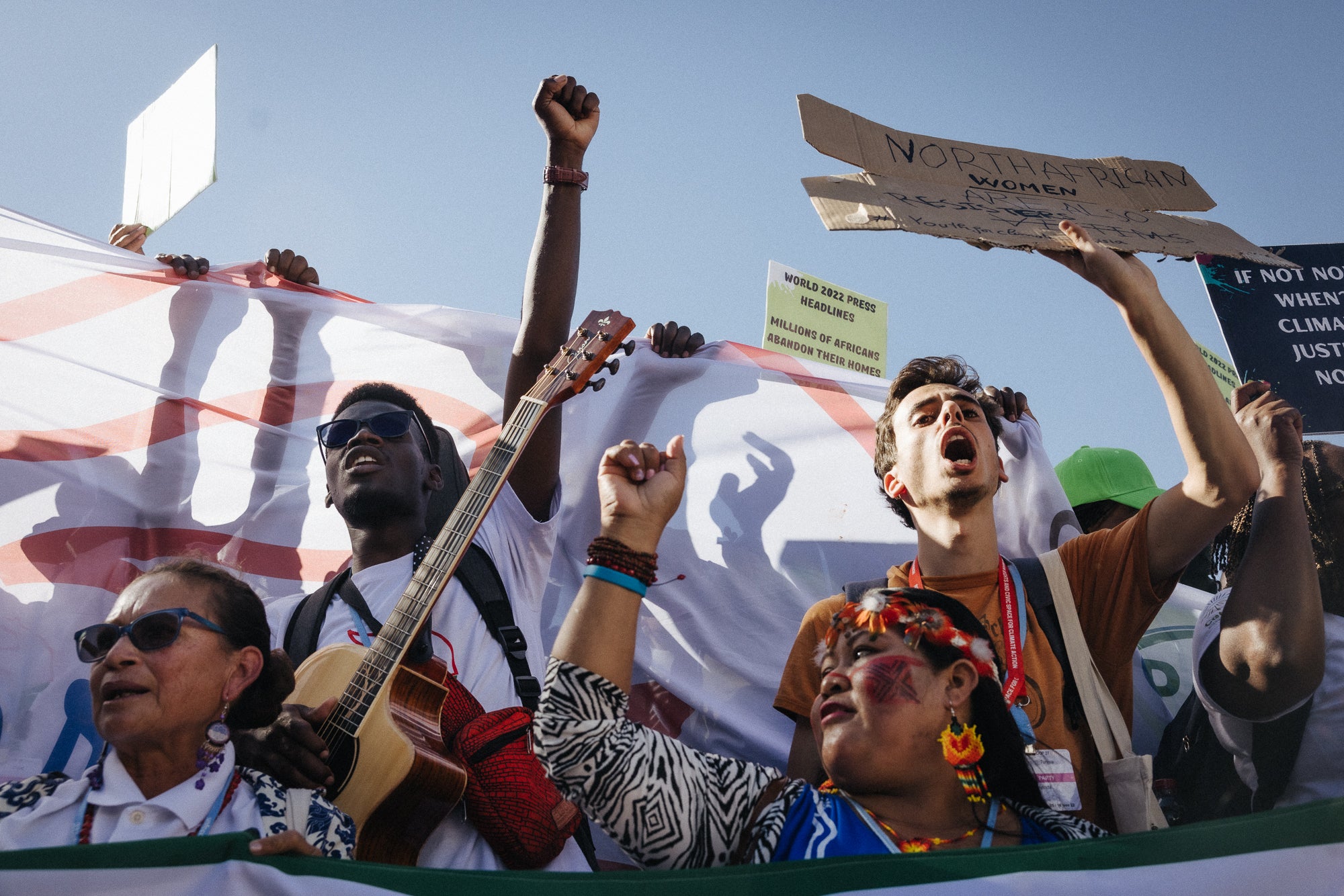
For two weeks in November, world leaders held climate negotiations in Sharm el-Sheikh, Egypt, at the annual United Nations Climate Change Conference (COP27).
This year, their conversations were informed by the historic Climate Justice Pavilion that brought forward the rarely heard voices and perspectives of the most vulnerable communities.
For the first time in the global climate summit’s 27-year history, a presence focused on climate justice was held by representatives from the Global South, U.S. environmental justice movement, and Indigenous peoples within the conference’s official “Blue Zone,” where the majority of diplomats and policymakers convene.
COP27 — “Conference of the Parties 27” — was the latest in more than a decade of UN climate negotiations that Earthjustice’s attorneys have participated in. We are proud and honored to be a part of the Climate Justice Pavilion.
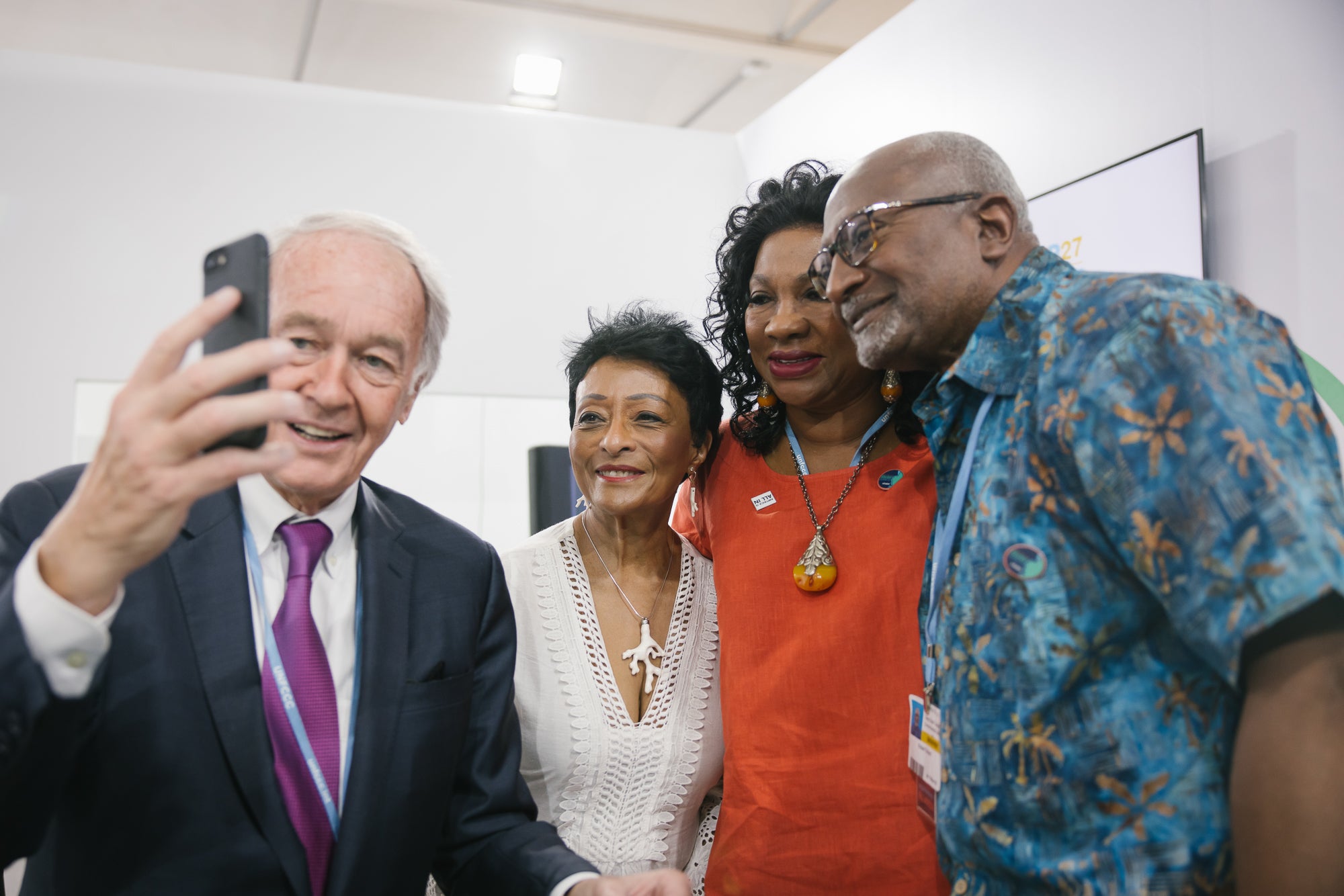
“You cannot talk about solving the climate crisis if the people most impacted are not at the table,” explained Peggy Shepard, co-founder and executive director of WE ACT for Environmental Justice and one of the founders of the Climate Justice Pavilion.
For years, reports issued by the Intergovernmental Panel on Climate Change have consistently raised the alarm about the worsening impacts of climate change on the most vulnerable communities, countries, and island states.
Yet the voices, stories, and perspectives of residents of these localities have often been excluded from the UN climate conference and other powerful institutions.
The Climate Justice Pavilion sought to bridge that gap.
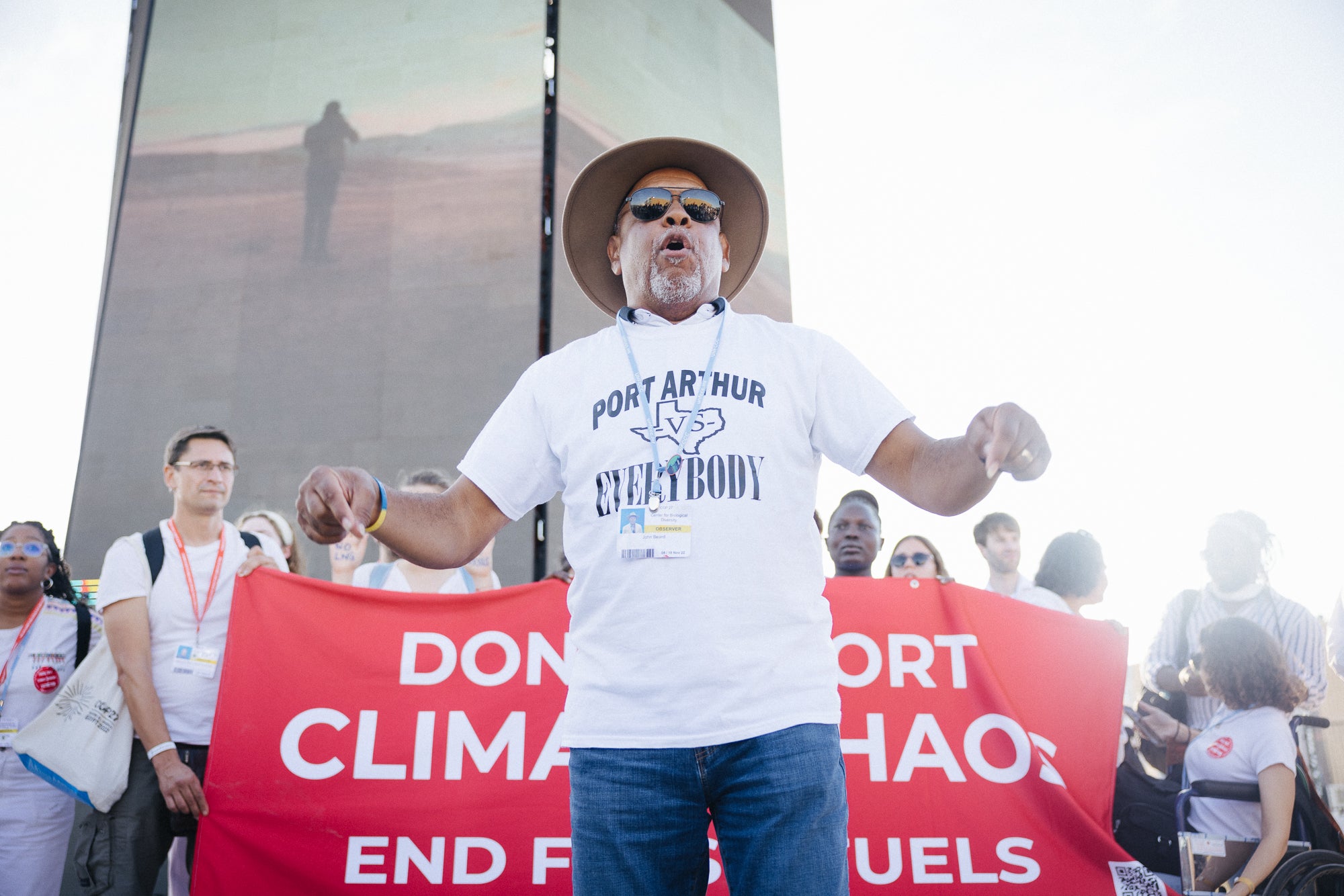

An estimated 30,000 people — diplomats, business leaders, scientists, NGOs, civil society groups, and more, from nearly every country in the world — attended COP27 to participate in the climate talks and develop solutions and agreements to face the climate crisis.
During more than two weeks of presentations and conversations, the Climate Justice Pavilion elevated the experiences and leadership of more than 100 speakers from Indigenous groups, the Global South, and more.
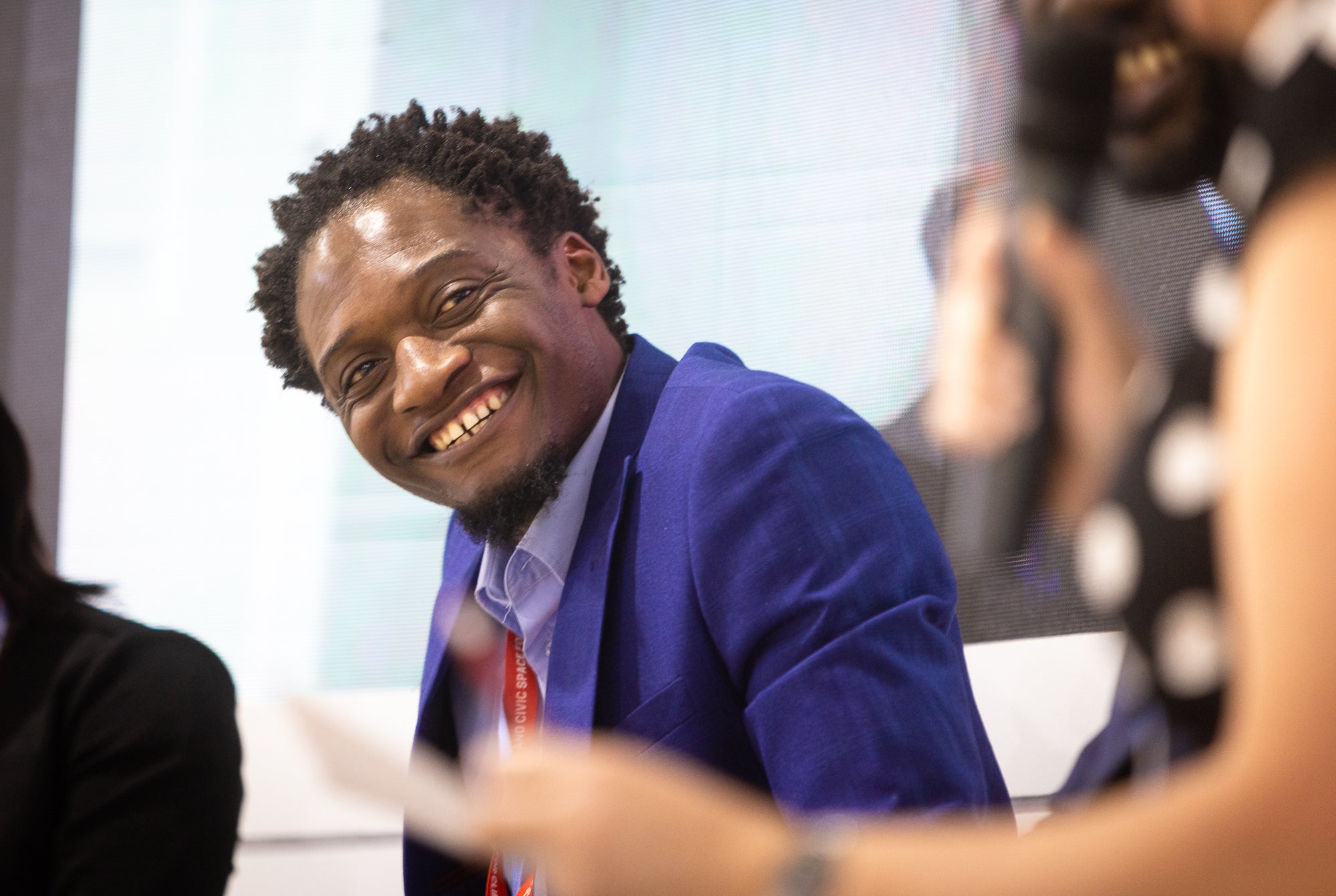
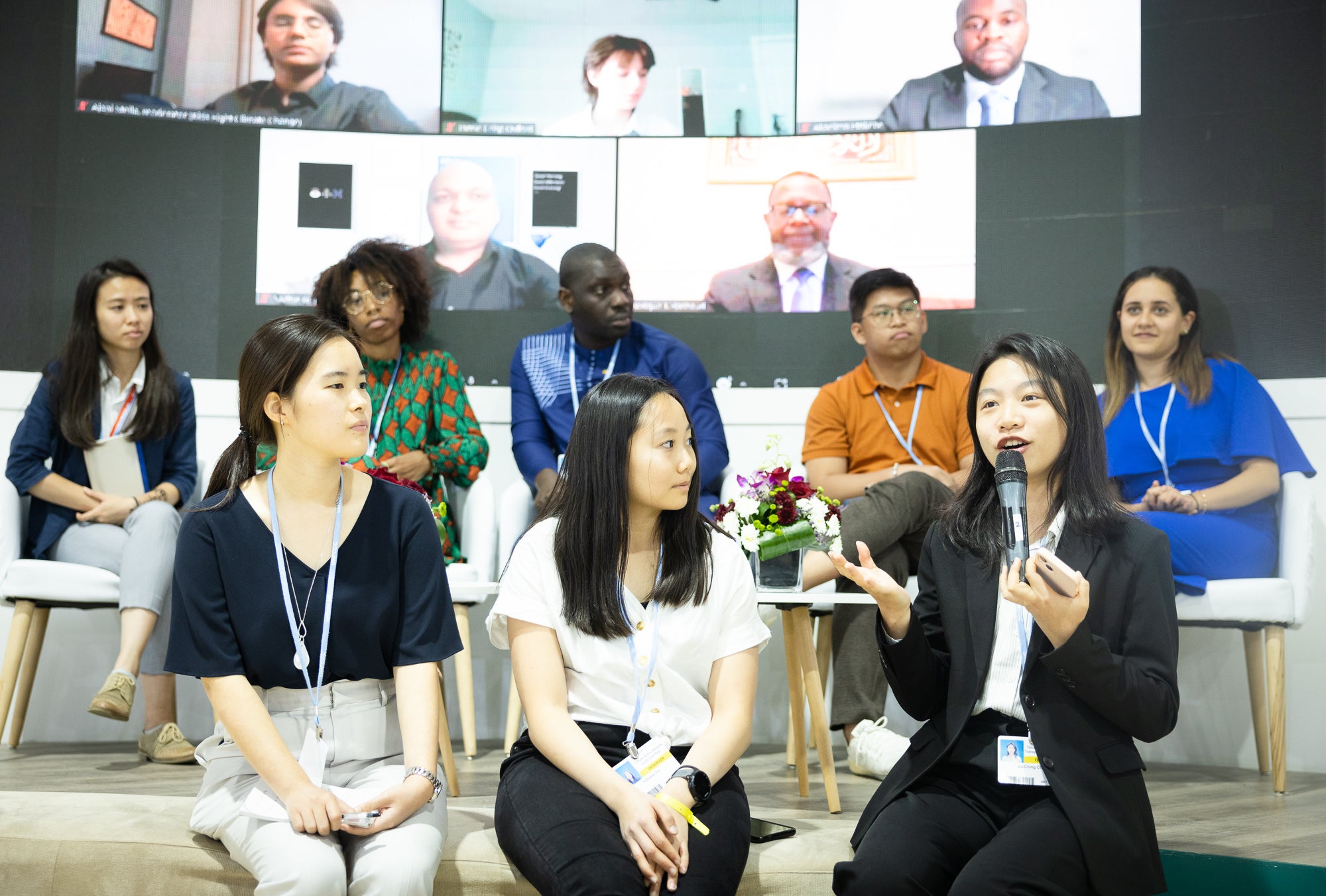
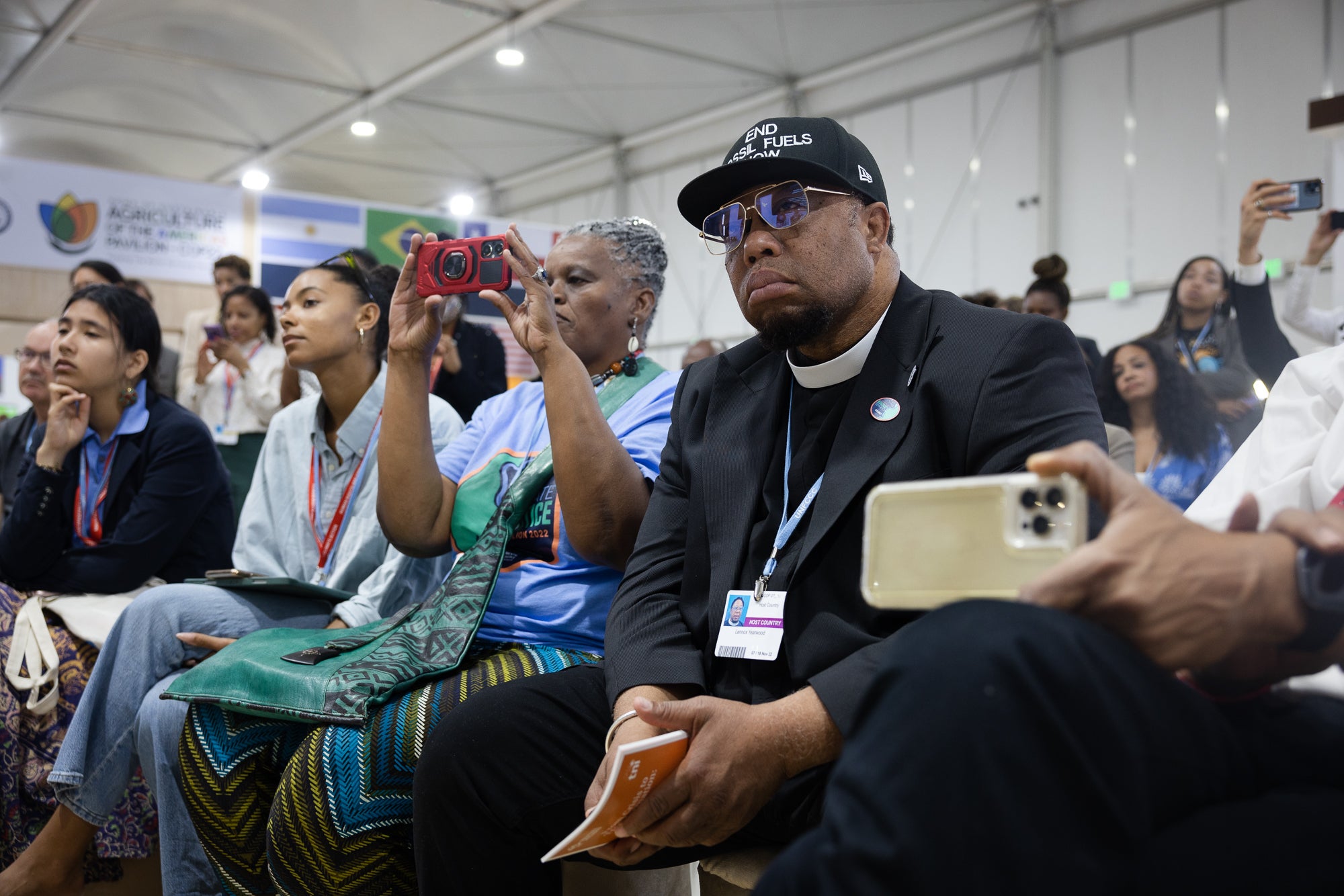
More than 40 panels were hosted at the Climate Justice Pavilion, on a wide range of topics including community driven climate solutions, financing for climate resilience innovation, lessons from Indigenous knowledge holders, and climate science accessibility.
“The significance of COP27 in Africa underscores the importance of environmental justice and the significance of our first-ever Climate Justice Pavilion,” said Dr. Robert Bullard, widely recognized as the father of the environmental justice movement and one of the collaborators who brought the Climate Justice Pavilion into reality.
“Those who visit the pavilion will hear about sectors of climate policy routinely overlooked and marginalized because of historic environmental racism.”
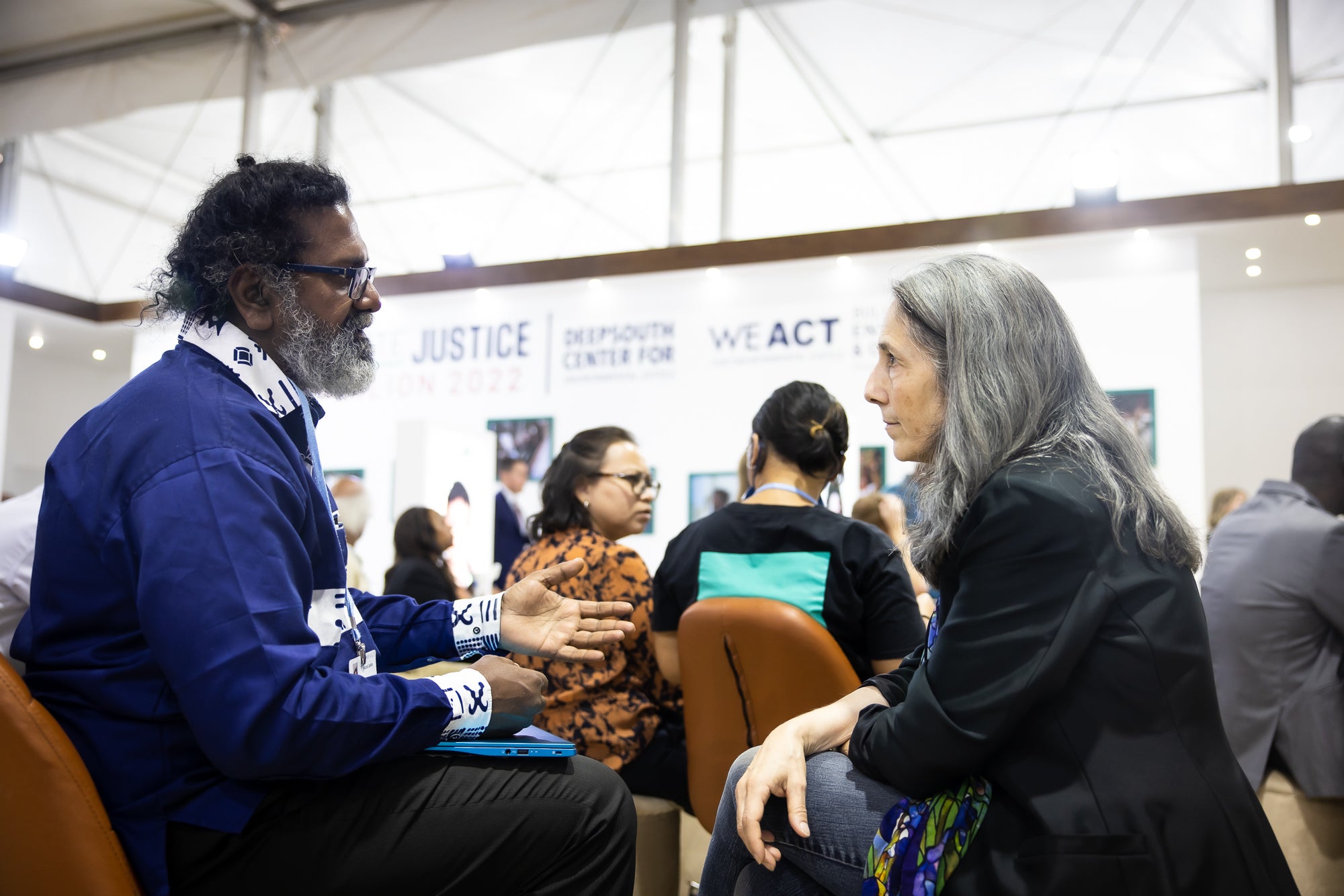
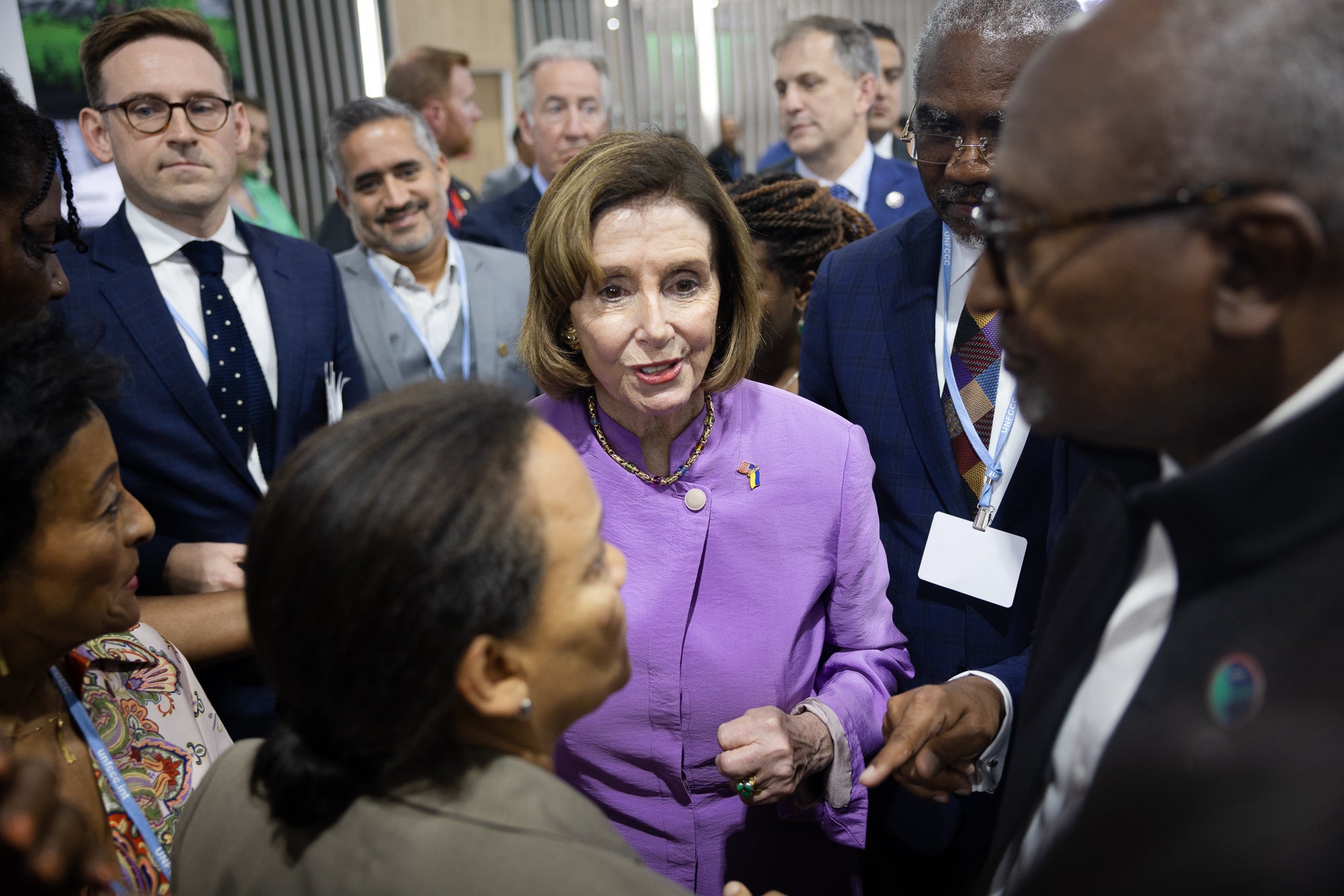
“We are building a home,” said Dr. Bullard, as he stood in the Climate Justice Pavilion.
“In the past, we’ve come to COP, but we didn’t have a place that was ours, a place where we were truly welcome.”
“Not this year. This year we have a home.”
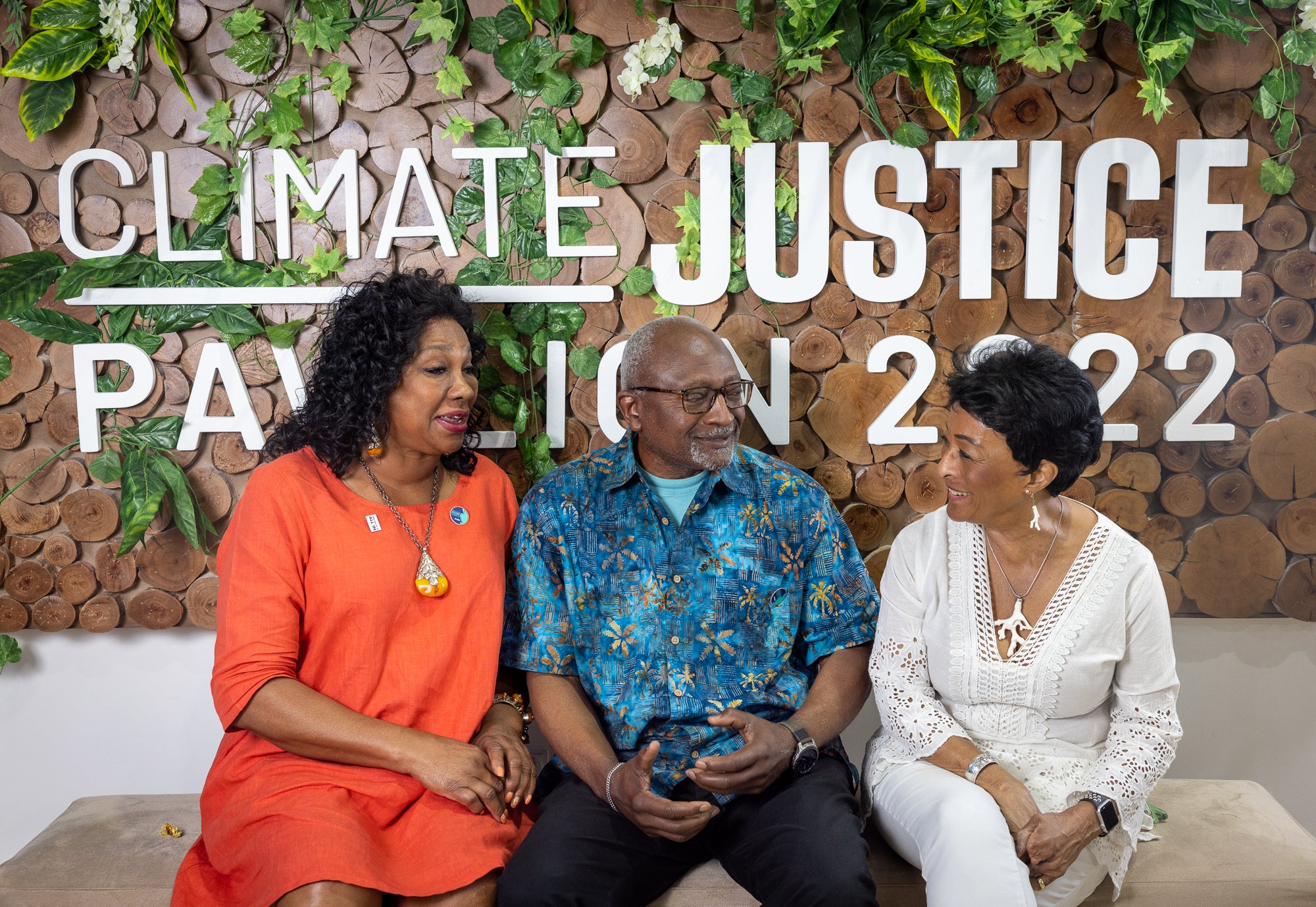
COP27 took place Nov. 6 to Nov. 18, 2022. The COP27 Climate Justice Pavilion was a collaboration effort from:
- Dr. Beverly Wright, Executive Director of the Deep South Center for Environmental Justice
- Peggy Shepard, Executive Director of WE ACT For Environmental Justice
- Dr. Robert Bullard, Director of Bullard Center for Environmental and Climate Justice, Texas Southern University
- Dr. Deb L. Morrison, CLEAR Environmental
- Marina Macal, Instituto Clima e Sociedade
- Cathy Eatock, Local Communities and Indigenous Peoples Platform
- Mithika Mwenda, PACJA, Pan African Climate Justice Alliance
- Fred Krupp, President of Environmental Defense Fund
- Abigail Dillen, President of Earthjustice
Earthjustice’s Fossil Fuels Program is taking on the fossil fuel industry’s efforts to pursue new paths to profit that not only accelerate the climate crisis, but also continue to cause harm to marginalized communities.
The International Program partners with organizations and communities around the world to establish, strengthen, and enforce national and international legal protections for the environment and public health.